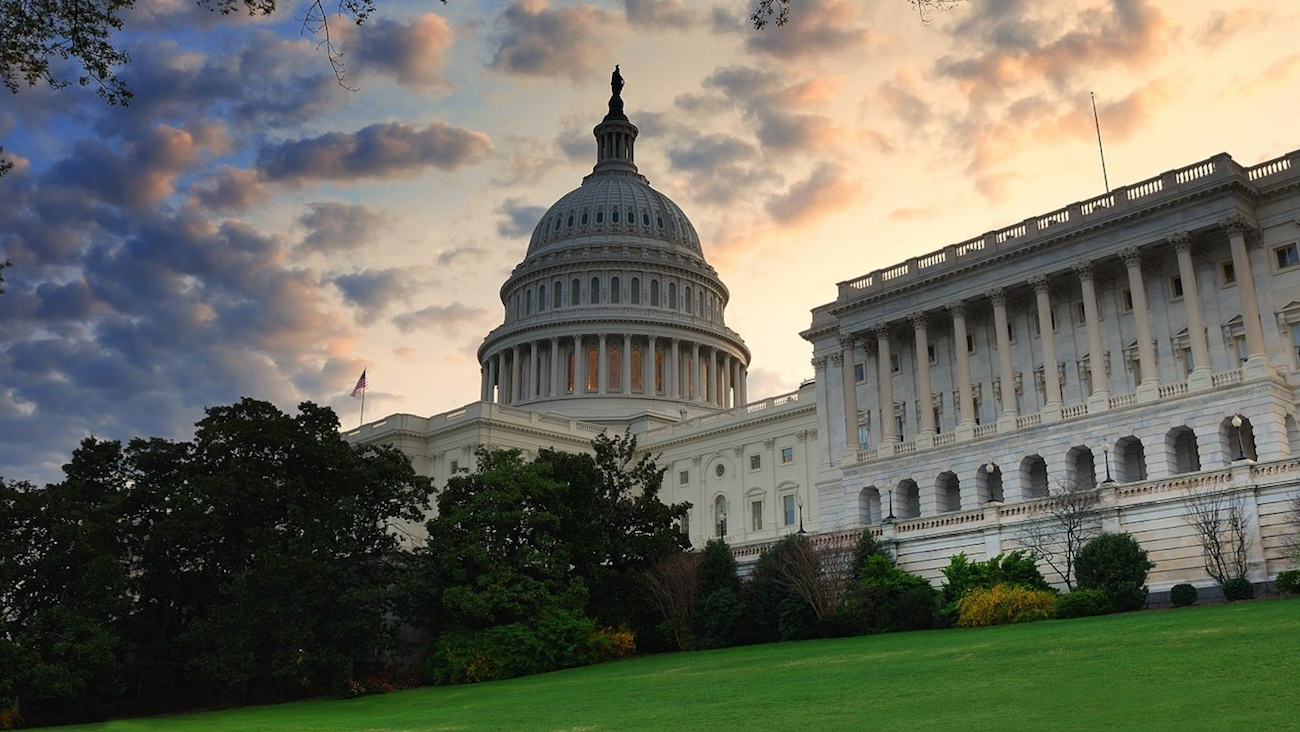The Chinese Communist government is cracking down on dissidents to ensure that the corrupt and authoritarian regime holds on to power. Christians are being persecuted, churches torn down and dissidents arrested. This is standard practice for communist regimes. But now Western technology is handing China potent new tools against dissent.
In late August, news broke that Google had entered into negotiations with the Chinese government and private companies in China to host an internet cloud that would allow the tracking of every person in the country with a computer or smartphone. Under a project called Dragonfly, Google is developing a search program that bans state-restricted words and reports users searching for banned words.
News of these discussions caused an outcry from civil libertarians and human rights activists already concerned about repression in China and its implications for Western democracies. Google responded by trying to reassure its employees and the public. Then, in October, Breitbart News disclosed an internal report from Google that concluded that due to a variety of factors, including the election of President Trump, the “American tradition” of free speech on the internet was no longer viable.
After initially evading questions about the secretive Project Dragonfly, Google on October 15 acknowledged the project was well underway. Google’s announcement came in response to Vice President Mike Pence’s demand that the company kill the project.
Matters worsened for Google with reports about the Chinese government’s “social credit” system, which awards “good” citizens with points and deducts points from citizens deemed “bad.” These social credits determine access to public loans, travel, housing and an array of other social “privileges.” Proto-social credit projects have been developed in the provinces beginning in 2014. In short, an Orwellian Big Brother state is being erected in China that goes beyond Orwell’s 1984 or any science fiction novel or television show.
The implications of this system are frightening, and not just for Chinese citizens. It should strike fear in all of us who fear unrestrained state power. The Orwellian nightmare is about to become a reality.
Google’s corporate motto is “Don’t be evil.” In its new partnership with the Chinese government to develop a search engine, news service and cloud-storing platform, Google’s true approach is Don’t be evil, unless profits are involved.
Google: Servant of Authoritarianism
This partnership reverses Google’s previous withdrawal from the Chinese market in 2010 when it was discovered that Chinese agents had hacked into the Gmail accounts of dissidents. Following the discovery, Google stopped obeying Chinese censorship and withdrew from doing business in China. This policy is now under reconsideration. Google has been developing a search engine for the Chinese market that bans specific words from being searched and reports on anyone searching for banned words or topics. The project is in early development, but the potential of the large Chinese market appears to be overcoming any moral qualms Google executives once pro- fessed. While jettisoning its scruples about Chinese repression, Google earlier this year declined to renew a contract for artificial-intelligence work for the U.S. Defense Department, under pressure from Google employees.
Under the Dragonfly project, Google is developing a search engine that removes state-banned websites from search results and blacklists user queries about these sites. In addition, Google computer whizzes are developing new algorithms for the major Chinese news aggregator, Toutiao, that impose even greater restrictions on news coming into China.
Whatever Google’s position on “free speech,” the development of a search engine that can censor information and report searches to the state is deeply troubling. The Google-built prototype, Dragonfly, reportedly links users’ searches to their personal phone numbers. This makes it easier for the Chinese authorities to monitor its citizens. Dragonfly also features a censorship blacklist allegedly compiled by Google that includes terms such as “student protest” and “Nobel Prize.”Linking searches to a user’s phone would allow government authorities to easily track a user even making an inquiry into a topic, term or issue deemed a threat by the state.
Any Google-China partnership will likely ensure that the government’s Great Firewall of censorship will be strengthened. New America, a centrist think tank in Washington, got the implications of this arrangement exactly right when it observed, “Party leadership is expanding the legal tools at its disposal to monitor and control information disseminated online.”
In 2017 the Chinese government established new laws to restrict so-called “sensitive” data from access on the internet. Under this law, the Communist Party strengthened its censorship tools. The party tightened its ban on anonymous online activity and ramped up its tracking of personal information of internet users. Thus, when it was revealed that Google executives had entered into talks with the state-aligned companies Tencent and Inspur, to partner on the development of a cloud system, shock waves went throughout the computer industry, shaking the faith of those who envision the internet as an instrument of freedom. Tencent ranks among the most valuable public companies in the world in stock value.
While Google has experienced blowback from the August reports of its discussions with Chinese officials, other American companies have complied with Chinese censorship rules. China is Apple’s third largest market, and Microsoft and Amazon both offer a host of services there, happily operating under the government’s intrusive rules. Other American companies such as Facebook, whose social network is banned in China, continue to hope to find ways to open doors in China.
Google’s Moral Equivocation
Google’s pretensions to moral superiority through its mission to organize all of life’s information came under heavy attack as word got out that it was in a partnership discussion with China. Until these talks were revealed, Google distinguished itself from other profit- minded corporations by claiming that it was reimagining a new world of global citizenship. Google projected itself as an agent of change. News of the Chinese discussions and Dragonfly challenged this image. As Ben Wizner, director of the Speech, Privacy, and Technology Project at the American Civil Liberties Union, declared, “If Google wants to be judged like any other global company, that’s fine. They should just say so—that their principal obligation is to their shareholders and their bottom line. But that has not been the rhetoric coming out of Google, and I think it’s fair to judge them by the standards they have set for themselves.”
The revelation of the Dragonfly project and discussions with China upset many Google techies who believed the company’s motto of “Don’t be evil.” In a meeting with employees, CEO Sundar Pichai tried to reassure them by stating, “We are not close to launching” a search engine in China. Nevertheless, he defended the company’s exploration of a partnership with Chinese companies. He suggested that returning to China was only a return to an accord that the company had reached with China in 2006 when Google agreed to censorship rules already in place. A company blog acknowledged that “filtering our search results clearly compromises our mission,” only to add, “Failing to offer Google search at all to a fifth of the world’s population, however, does so far more severely.”
Google scaled back operations in China after cyberattacks on the company’s computer systems in 2010. These attacks occurred after Google had been operating in the country for the previous four years under censorship laws. Outraged by the Chinese cyberattack, Google pulled its search engine out of the huge market. Eight years later, Google executives began to rethink the company’s position in China.
In one sense, Google’s moral equivocation is in line with what is already occurring in the world. Various rules censoring “hate speech” have been imposed in Western Europe and the United States and more rules are in the works. Conservatives in America have vocally complained that they have been suspended from Facebook, YouTube, Twitter and other sites because of accusations of hate speech.
‘The Good Censor’
Matters worsened for Google when Breitbart News publicized a leaked internal Google briefing declaring that the corporation no longer considers free speech a viable policy in Western democracies.The 85-page briefing, called “The Good Censor,” stated that Google and other platforms “control the majority of online conversations” and have undertaken in the name of social responsibility a “shift toward censorship” in response to unwelcome political events around the world. What were the examples of unwelcome political events? The document pointed to the rise of the nationalist right in Germany and the election of Donald Trump in 2016. These and other events suggested to Google executives that free speech needed to be restricted.
The internal document labeled unfettered free speech on the internet a “utopian narrative” that has been “undermined” by recent global events and “bad behavior” on the part of users. The briefing warned that Google, Facebook, YouTube and Twitter find themselves in a contradictory position of trying to be both an “unmediated marketplace of ideas” and “well-ordered spaces of safety and civility.” The traditional American tradition of free speech “prioritizes free speech for democracy, not civility.” The second tradition comes from Europe, which “favors dignity over liberty and civility over freedom.”
Neutral No More
All platforms, the report concluded, are moving toward the European tradition of restricting free speech to protect civility and safety. The briefing accepted this new role of maintaining civility and safety, contrary to long-time claims that Google, YouTube and other tech platforms are not publishers but neutral platforms. This assertion that they are managers of neutral platforms and not publishers allows them to avoid restrictions under Section 230 of the Communications Decency Act.
Under political pressure for Google to shut down Project Dragonfly, Google’s CEO Sundar Pichai doubled down in October by announcing that his corporation had assigned 300 full-time engineers to the project. He insisted the project was just an “experiment” in its early stages, but an internal memo leaked to the press suggested Dragonfly could be up and running within six to nine months.
The briefing asserted that internet free speech breeds conspiracy theories. It pointed to a 2016 tweet from Donald Trump alleging that Google suppressed negative search results about Hillary Clinton. Google at the time responded that it suppressed negative results for everyone, but later investigation showed that this was not the case for Donald Trump or Bernie Sanders, where negative search results were readily available.
Whether Google is biased in its search results, though, is a side issue. The importance of the internal briefing is that Google executives are discussing the need for the platform to serve as a “censor” of speech on the internet. The document clearly distinguishes “have a go commenters” (ordinary people) who are placed on a level playing field with “authoritative” sources, like the New York Times. The briefing declares that the need for censorship is being driven by a fear that the federal government is about to step in to regulate the giant internet corporations. Further censorship, the briefing maintains, is necessary if these tech companies want to “expand globally.”
China, Social Credit, and Control
Google’s moral equivocation presents an especially dangerous path because Chinese authorities have developed an extensive “social credit” system in which individuals are awarded individual credit scores by state authorities. Development of this system has been in the works in different Chinese provinces since 2014. The Chinese government projects that this system will be in place by 2020 for all of its 1.35 billion citizens.
At least three dozen pilot projects have been launched since 2014, using different metrics to calculate an individual’s social credit score. The system resembles an American credit score, but judges citizens and businesses on “social responsibility.” Surveillance—including internet postings—allows state authorities to award or deduct social credit points. A poor social credit score can lead to bans for travel, schools, luxury hotels, government positions, and even phone apps, including dating apps.
One example of how this system works is found in the city of Rongcheng, a sprawling city on the eastern tip of Shandong province. Residents start off with 1,000 points. Each reported act changes their score. A traffic ticket means a deduction of 5 points. Donating blood or money to a charity adds points depending on the amount given. A person with a high score is eligible to receive public rental bikes without a deposit, $50 heating discounts in the winter, and more favorable interest rates on bank loans. Citizens with high scores are applauded, with their names posted outside city hall, the public library and in residential communities.
Individuals doing business with designated companies can raise their scores. The giant Chinese tech company Ant Financial has a deal with the city of Rongcheng, in which individuals who download the company’s bill-paying app, Alipay, are given a higher credit score. The app hosts China’s version of Facebook, popular games and a dating site. Buying products over Alipay adds points to a purchaser’s social credit score.
Businesses are also given credit scores. Paying taxes on time and abiding by government rules leads to easier access to cash and better loans by the government. Complaints of producing low-quality or unsafe goods means a deduction of social credits, which can have severe financial consequences. A person with a poor credit score cannot buy high-speed train or plane tickets.
Within this system, there is no transparency. Factors that affect a person’s or business’s score are not evident. Who is doing the scoring? Appealing a low score is not possible. Indeed, in such a system, contesting a score might be characterized as disloyalty. Furthermore, the system reinforces class differences, in that persons without access to a social network cannot raise their score.
Beijing has announced that a national social credit system will be rolled out by 2020. All companies operating in China with a business license will be required to have an 18-digit “unified social credit code.” Many Chinese are welcoming this new system, asserting that where it has been imposed, people are acting better. Such a system fits into a traditional society that values order over freedom. Social control is not new to China. What modern technology is providing is a means for the state to exert even more control, to an extent never imagined by ancient emperors.
Internet restrictions have been in place for some time in China. For example, a Wikipedia search for “1989”—the year of the Tiananmen Square massacre of student protesters by the Chinese army—turns up only two responses: a “number between 1980 and 1990” and the “name of a computer virus.” Orwell understood that those who control the past control the future. Dragonfly is just one step forward in the long Chinese march to control its people. Still, Orwell did not envision that private corporations would be complicit in creating the authoritarian state.
Why do Google’s plans for the China market matter to readers of the Mindszenty Report? Simply this: It’s not hard to imagine a future in which postings by Americans that condemn abortion, same-sex marriage, homosexuality or religious intolerance will be banned as hate speech by the self-proclaimed guardians of the moral order. Censorship of conservative U.S.-based web sites by Facebook, YouTube, Twitter, Google and other tech giants is already commonplace. The situation is worse in Europe. In June 2017, the German parliament passed a federal law, the Network Enforcement Act, which requires platforms to establish and address user complaints of offensive speech. Failure by corporations hosting communication platforms can lead to fines up to 50 million euros. As a consequence, Google’s YouTube and Google+, Facebook and Twitter have blocked tens of thousands of pieces of content.
Harbingers of worse things to come? For sure, if private corporations such as Google decide that cooperation with repressive regimes is worth the profit and the loss of reputation.








